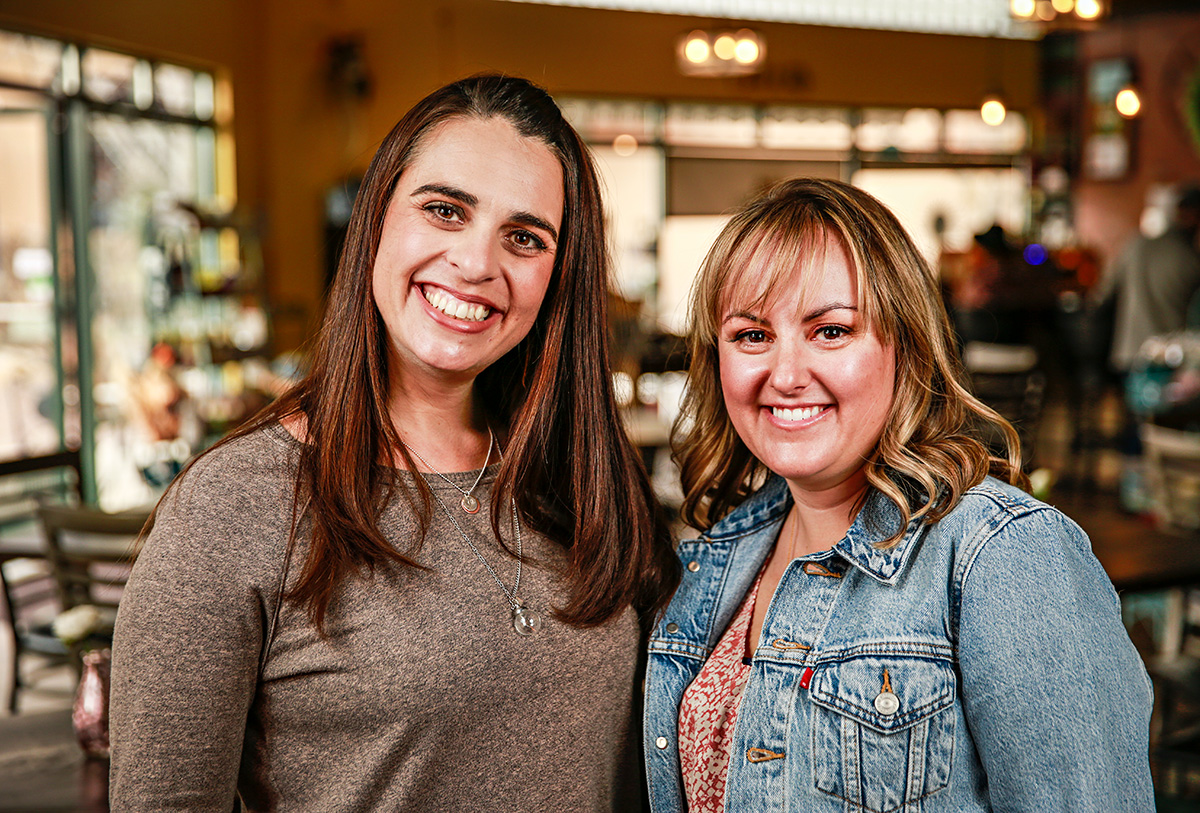Postpartum Resource Group Wins Federal Funding for Mental Health Services
Grassroots organization offers support for mothers with a focus on postpartum mood disorders; new program will send trained doulas into families' homes
By Myers Reece
In 2014, a handful of mothers began gathering as a support group in the office of founder Jana Sund, a certified nurse midwife. The group grew gradually and organically, committed to supporting survivors of postpartum mood disorders as both a resource by itself and a connector to other resources.
Then, late last year, the Flathead County-based Postpartum Resource Group won $25,000 in federal funding through the Agency for Healthcare Research and Quality’s Cross-Sectional Innovation to Improve Rural Postpartum Mental Health Challenge, one of five awardees nationwide to be selected through the competitive process and one of only three in its category.
The organization, for which Sund remains president, has come a long way since 2014, even if its grassroots structure and focus are unchanged, and the funding allows it to further its mission of supporting mothers and addressing postpartum mood disorders by accelerating the launch of its doula program called The Network and hiring a full-time director for it.
“We laid a lot of bricks, so it’s kind of fun to see the structure come out of the bricks we’ve laid over so many years,” said Maggie Rogness, a mother of three and the group’s treasurer, said. “We’re all very passionate. We’re all moms, and most of us are survivors.”
“This small town organization wins a federal grant and is recognized on a federal level,” she added. “It feels like people are starting to take notice of what’s a very basic issue, which is motherhood.”
The team of volunteer doulas, whose training is paid by the organization, will work with mothers in crisis who have minimal support or family help. The doula services will be available 24/7 throughout Flathead County beginning this year, which Rogness said better positions the organization to “help take the edge off the harrowing time of new motherhood.”
“This funding finally takes seriously the needs of postpartum women, especially those that have faced trauma,” Rogness said. “Postpartum women need all the help they can receive to allow children and mothers a successful transition into the world.”
In an article for Johns Hopkins Medicine, the assistant director of the institution’s Women’s Mood Disorders Center, Dr. Lauren Osborne, said roughly 85% of new mothers experience some form of “postpartum blues,” often called “baby blues,” during which they may “feel happy one minute and overwhelmed and crying the next.”
But if symptoms are severe or long lasting, mothers may be experiencing a postpartum mood disorder, commonly but not exclusively postpartum depression. Women who had anxiety or depression before giving birth are at higher risk.
“People tend to think of depression as sadness, but that’s not always the case,” Osborne said. “Particularly in the postpartum period, there’s a lot of anxiety and irritability, plus lack of sleep, which is a huge risk factor for postpartum depression.”
While postpartum depression and anxiety are relatively common, postpartum post-traumatic stress disorder, bipolar mood disorders and psychosis can also occur, the latter characterized by symptoms including confusion, cognitive impairment, disorganized behavior, and hallucinations or delusions.
“I don’t think people understand how dangerous postpartum mood disorders can be,” Rogness said. “We write it off. But women really need more support.”
In describing an example of both the potential severity of such disorders and her group’s ability to provide support, Rogness recalled a mother who needed care at Pathways Treatment Center but couldn’t afford childcare during her stay.
“So we pooled money together for childcare,” she said. “That kind of thing happens a lot.”
Other examples include compiling funds for supplies such as diapers and food, or mothers passing along items such as backpacks, strollers or breast pumps that they no longer need. The group, recognizing the importance of exercise for new mothers, has also sponsored gym memberships and yoga nights, and volunteers support new mothers in their homes, including helping with childcare, meals and cleaning.
Postpartum Resource Group holds two free support groups per month, one in Kalispell and one in Whitefish, which are confidential and led by trained group leaders, and is hoping to expand to four each month. It also offers online forums for those who can’t attend in-person. The organization relies on volunteers and fundraising, including events such as a 5K.
The doulas trained through The Network program will visit mothers in their homes, assisting with food preparation, chores, breastfeeding and other forms of support, while keeping an eye out for mood disorders.
“The idea is catching these things upfront, early,” Rogness said.
“We prepare so much for birth, labor and delivery, but what we don’t prepare moms and dads for is what comes after,” she continued. “That’s when life gets real. It’s not just about supporting women but supporting our next generation.”
For more information, visit www.postpartumresourcegroup.org or the organization’s Facebook page.